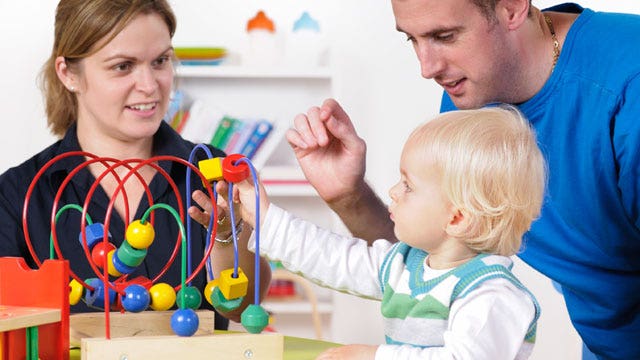Tracking your child’s development
Children’s growth is measured in more than just height and weight – the way a child behaves, talks, plays and interacts with others can provide important clues about cognitive development. Dr. Manny sits down with an expert to talk about developmental milestones
Your child's growth can be measured in more than just height and weight – the way he or she behaves, talks, plays and interacts with others can provide important clues about his or her cognitive development. With careful surveillance, early assessment and intervention, and the help of your pediatrician, you can help your child grow to reach his or her full developmental potential.
What are “developmental milestones?”
One standardized tool to assess a child is the use of developmental "milestones" – things most children can do by a certain age. Skills fall into four main categories: Language, for example, babbling, saying first words; gross motor skills like rolling over, crawling, walking; fine motor skills like grasping a toy or scribbling; and social/emotional skills like smiling, copying facial expressions and playing pat-a-cake.
What if my child is not meeting milestones appropriately?
A developmental "delay" is when a child does not reach these milestones at the same time as other children the same age. Standardized lists of developmental milestones can be found on the Centers for Disease Control and Prevention (CDC) website, or you can ask for one from your child's doctor. Keep in mind, the guidelines are roughly based on a child's age, and may need to be adjusted for children born prematurely or for those with underlying medical conditions.
What is the role of my pediatrician?
The American Academy of Pediatrics recommends that developmental surveillance be incorporated at every well-child preventive care visit. Any concerns raised during surveillance should be addressed promptly with a more formal developmental screening evaluation.
In addition, screening tests should be administered routinely at the 9-, 18-, and 24- or 30-month visits. These "tests" may take the form of questionnaires and/or having the child perform certain tasks like drawing a circle, pointing to objects or hopping on one foot, etc.) For example, the Modified Checklist for Autism in Toddlers is a 23-question, scientifically validated tool for screening children (usually at the 18- and 24-month check-ups) to assess their risk for autism spectrum disorders.
Positive screenings should lead to further medical evaluation, diagnosis and treatment which may include referral to a developmental specialist, geneticist or early intervention program. For developmental delays, like many other conditions, early detection and intervention are crucial!
What is my role as the parent?
If your child is not developing properly, there are things you can do that may help. Appropriate exercise, sleep and nutrition are very important for children's development and overall health. Playing, talking, singing and reading with your child can also aid in terms of motor and language skills. If you feel that your child is not meeting the milestones for his or her age, or if you have specific concerns, maintain an open dialogue with your child's doctor. Usually a developmental problem is not something your child will simply outgrow, so address it early!
Dr. Corey Wasserman is a resident pediatrician at New York Presbyterian Hospital-Weill Cornell Medical Center. She received her undergraduate degree in psychology with an emphasis on child development at Bucknell University and went on to attend Jefferson Medical College in Philadelphia, where she received her M.D. and graduated with high honors.








































